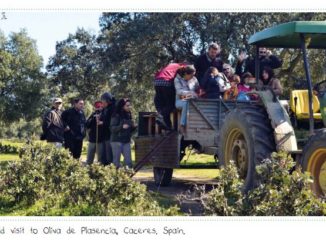The benefits of local food are both tangible and worthwhile, according to a full-term evaluation of the Making Local Food Work programme (MLFW). The scheme had GBP 10 million of Big Lottery Fund money over the past five years to develop a range of community food enterprises across the UK.
 The MLFW initiative brought together the efforts of seven organisations. These are the Campaign to Protect Rural England; CooperativesUK; Country Markets; the National Farmers’ Retail & Markets Association (FARMA); the Plunkett Foundation; Sustain and the Soil Association.
The MLFW initiative brought together the efforts of seven organisations. These are the Campaign to Protect Rural England; CooperativesUK; Country Markets; the National Farmers’ Retail & Markets Association (FARMA); the Plunkett Foundation; Sustain and the Soil Association.
Since starting out in 2007, MLFW has had an impact on nearly four million consumers in the UK by supporting 1,558 community food enterprises. This has helped 7,289 producers and recruited the support of 10,000 volunteers, as well as providing employment for 6,623 people.
The evaluation was carried out at Plymouth University by SERIO. As well as raising awareness of local food and producers, the findings demonstrated both growing support for local food and greater awareness of it. This in turn generated jobs and greater availability of local food, developing skills and capacity.
As often happens, a lot of the benefits are almost secondary effects arising from a funded activity. With extensive marketing and communications work, the profile of local food producers in general. Plunkett Foundation chief executive and MLFW director Peter Couchman explained that the SERIO study examined different areas, such as economic impact or increasing knowledge and understanding.
“In each case they find that the programme has had a positive impact, albeit to varying levels. Together, this evidence combines to form the single simple fact that the local food world is a better place for Making Local Food Work,” Couchman declared.
The SERIO evaluation report is available for download here: http://www.makinglocalfoodwork.co.uk/templates/asset-relay.cfm?frmAssetFileID=1244





